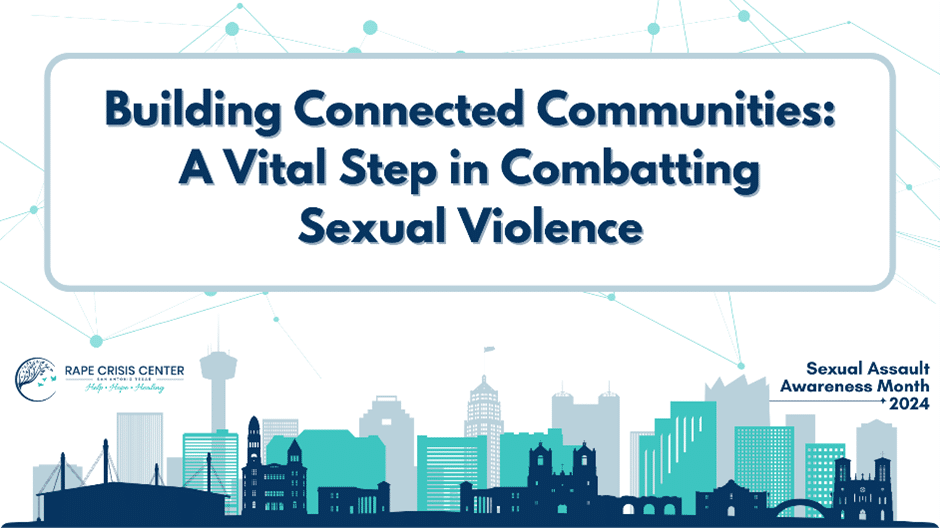April is Sexual Assault Awareness Month, a time for us to collectively reflect on the prevalence of sexual violence in our society and to recommit ourselves to the crucial work of prevention and support. At the Rape Crisis Center, we believe that building connected communities is a vital step towards creating a world free from sexual violence.
Survivors often face feelings of isolation, shame, and fear due to assault. They may struggle to find empathetic guidance and a supportive network. This is where community connection becomes invaluable.
Connected communities are built on empathy, respect, and active listening. These are safe spaces for survivors to share their stories without fear of judgment. They are networks of individuals and organizations working together to challenge harmful attitudes and behaviors. But building connected communities requires more than just good intentions; it requires action.
Here are some ways that each of us can contribute to the creation of connected communities:
- Educate Yourself: Take the time to educate yourself about the realities of sexual violence, including its causes, impacts, and prevention strategies. Challenge your assumptions and beliefs, and be willing to listen and learn from survivors.
- Speak Out: Use your voice to speak out against rape culture and the normalization of sexual violence. Whether it’s confronting offensive jokes, advocating for survivor-centered policies, or simply sharing information on social media, every action counts.
- Support Survivors: Be a supportive ally to survivors in your community. Offer a listening ear, believe their stories, and validate their experiences. Respect their autonomy and empower them to access the support services they need.
- Get Involved: Join community organizations and initiatives to prevent sexual violence and support survivors. Volunteer your time, donate resources, or participate in awareness-raising events and campaigns. Together, we can make a difference.
- Promote Consent Culture: Foster a culture of consent and respect in your relationships and interactions. Teach young people about healthy boundaries, communication skills, and affirmative consent. By challenging the notion that “no means yes” and promoting enthusiastic consent, we can help prevent sexual violence before it occurs.
As we observe Sexual Assault Awareness Month this April, let us recommit ourselves to the work of building connected communities. Together, we can create a world where survivors are believed, supported, and empowered. Join us in the fight against sexual violence, and together, we can make a difference.
Remember, if you or someone you know needs support, the Rape Crisis Center is here to help. Reach out to us for confidential support, resources, and referrals. Together, we can build a safer, more connected community for all.
Let’s stand together against sexual violence, this month, and every month.

